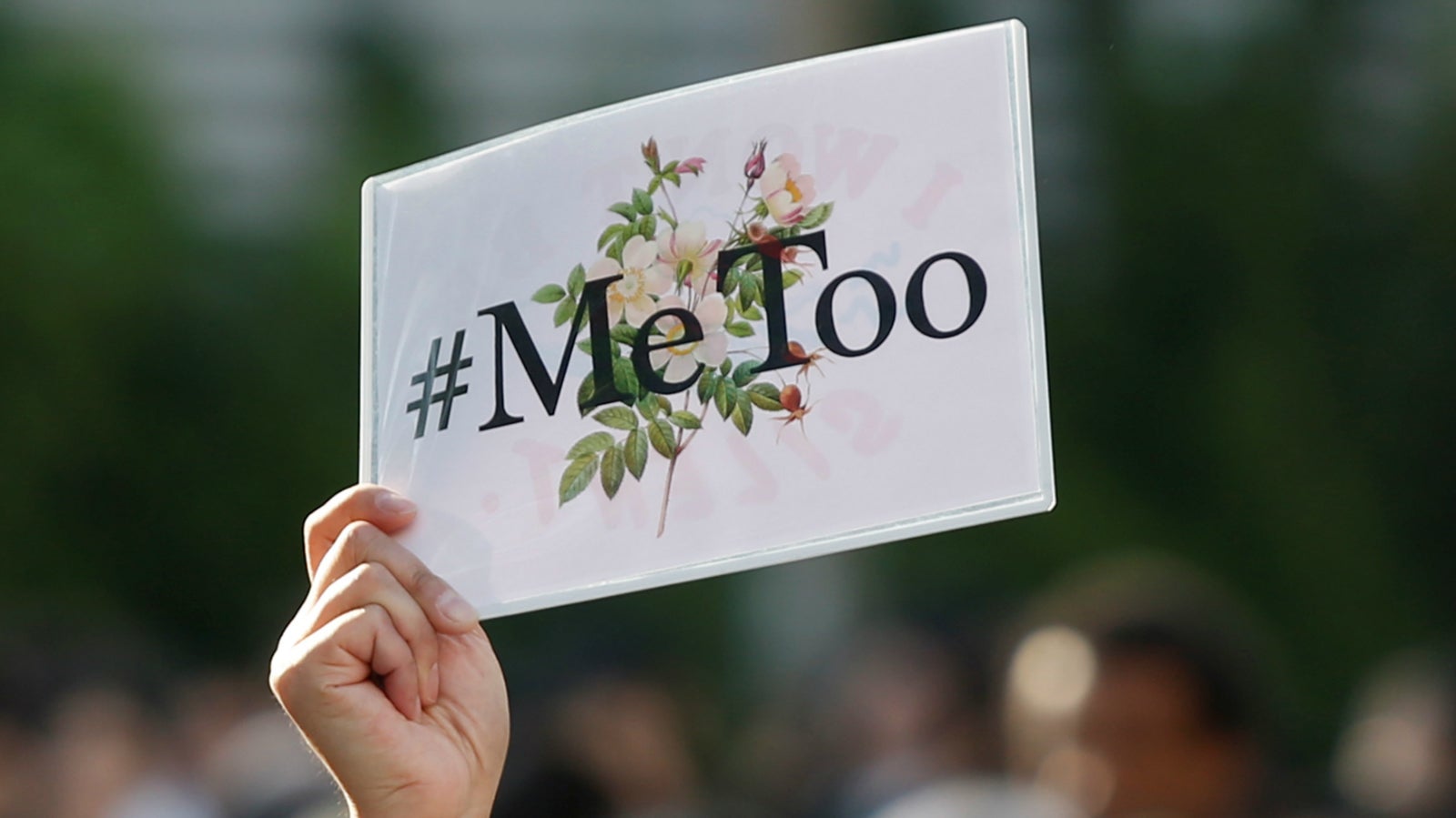Meet the women powering India’s #MeToo movement
Over the past week, #MeToo has outed some powerful men in the Indian media and entertainment industry over alleged sexual assault and harassment.


Over the past week, #MeToo has outed some powerful men in the Indian media and entertainment industry over alleged sexual assault and harassment.
Several male journalists, standup comics, and movie personalities have either quit their senior positions or have been removed, even if temporarily, or lost lucrative deals.
Significantly, a handful of industry insiders are shepherding the snowballing movement.
These journalists, Anoo Bhuyan, Sandhya Menon, and Rituparna Chatterjee, among others, have been compiling accounts of harassment and coordinating resources for the survivors. They have also acted as conduits for the stories of women wary of speaking out—publishing their accounts anonymously. Now they are also organising legal help and trauma counselling for victims.
“It’s very conflicting in an emotional sense, because we’re journalists and journalists we know for some time have been named as predators,” Chatterjee told Quartz.
First responders
India’s #MeToo wave was sparked by Bollywood actress Tanushree Dutta, who alleged in an interview a few weeks ago that actor Nana Patekar had harassed her during the filming of a song in 2008.
However, social media revelations didn’t begin until Oct. 04, when writer Mahima Kukreja tweeted that comedian Utsav Chakraborty had sent her unsolicited pictures of his genitals. Soon, others were tweeting that he had behaved similarly with them. Since then, the micro-blogging website has seen an outpouring of stories—often with screenshot evidence—from women harassed by a slew of well-known personalities.
Heads began to roll.
On Oct. 08, comedy collective All India Bakchod (AIB) co-founders Tanmay Bhat and Gursimran Khamba stepped away following allegations of omission and commission on their part. Senior journalist KR Sreenivas of The Times of India was sent on administrative leave after a bunch of colleagues accused him of gross sexual misbehaviour. A Hindustan Times editor, Prashant Jha, stepped down following similar allegations.
Bhuyan and Menon, two of those coordinating #MeToo, were among the first to publicly call out their male colleagues.
A reporter with The Wire, Bhuyan tweeted on Oct. 05 that journalist Mayank Jain had made unsolicited advances toward her.
Jain resigned from his job at Business Standard four days later. “(MeToo) is really about figuring out how we as men and women—but certainly, especially as women—can serve other women better,” Bhuyan told Quartz.
Menon, an independent writer and journalist, tweeted on Oct. 05 that Sreenivas had assaulted her in 2008 when she worked with him.
Bhuyan and Menon were soon fielding direct messages from others with similar stories to tell. Menon alone has received about 135 such direct messages from women over the past week.
The most powerful messages, Bhuyan said, are the ones in which women are “for the first time having these lights go on in their head, saying, ‘This shame is not on me. There’s no need for me to hide this.’”
“Five years ago, if you’d asked me, hey, go and complain, I wouldn’t even think twice about saying ‘no one’s going to believe me,’” Menon said. “Now, I’m going to think twice, and say, hey, I think I may be believed.”
Pooling resources
Bhuyan, Chatterjee, and Menon, along with a handful of volunteer lawyers, have been compiling a list of those who could extend pro bono legal help to women who may face legal backlash from harassers.
“We’re coordinating that behind the scenes—connecting survivors to lawyers,” Chatterjee said.
The list of lawyers will be made public after it has been verified by the team collating it, who will ensure that each lawyer can be vouched for by at least one reference from a known party.
Besides, the Indian government’s National Commission for Women told Menon that nothing could be done until the women had prepared written complaints. So now they are also helping the victims lodge formal complaints.
They are also compiling a list of therapists who have volunteered to treat trauma survivors.
One of the most difficult points, Chatterjee said, is that many are not willing or able to speak publicly yet. “The saddest part is most people still think that they need to be anonymous,” she said. “Because for concrete action to happen you have to put (a) face to your accusation.”
The way forward
Bhuyan said that since the legal system often fails women, the media’s role is crucial.
“The fact is, the due process is broken,” Bhuyan said, adding that media can help this by performing “due diligence” in reporting stories. “Due diligence can go a long way in plugging the holes in due process or responding to the brokenness of due process.”
Going forward, the movement will have to widen its focus and include more people, Chatterjee said.
“We’re only hearing from a very small fraction of women—of urban, elite, English-speaking women who are on social media,” she said. “There is a vast number of women out there in India who are not part of this, who are not on social media…This is not going to be a MeToo movement unless every woman is heard.”